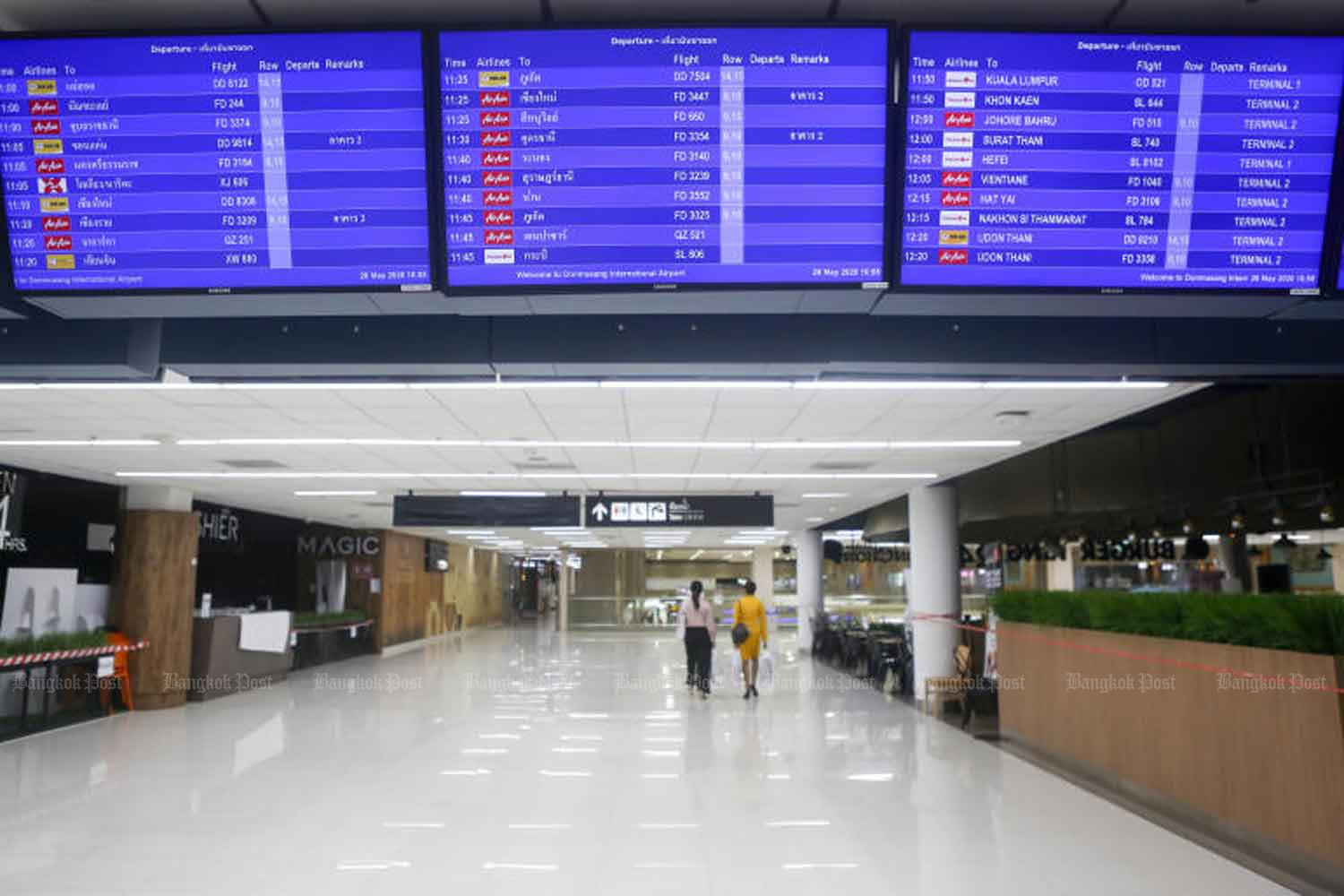
The government is considering easing entry restrictions for foreign visitors possibly in the third or final quarter of this year, with priority given to those arriving from coronavirus-free areas, says Deputy Prime Minister Somkid Jatusripitak.
He said relaxing inbound travel restrictions is the first step in kickstarting the tourism industry, but the government has to be prudent in screening travellers and implementing an efficient tracking system to reduce the risk of a second wave of infections.
Mr Somkid said visitors from countries or areas where Covid-19 outbreaks have been contained are likely to be the first to get the green light and that he has already raised the issue with Prime Minister Prayut Chan-o-cha.
“It doesn’t have to be an entire country — we can allow visitors from towns or provinces which are free from the coronavirus. Travel restrictions will be gradually eased and foreign visitors are expected to return in the third or fourth quarter of this year,” he said.
The third quarter of the year starts next month.
According to Mr Somkid, stimulating local spending and tourism are vital to kickstarting the economic recovery, especially considering the sluggish imports at the moment.
The Finance Ministry is also considering a fresh assistance package which will be rolled out in the third quarter to coincide with the easing of travel restrictions, said Mr Somkid.
He said local tourism is picking up after the third phase of lockdown easing, but a fresh package will lure more people to travel and spend and maintain the recovery’s momentum.
“We hope the package will keep the momentum all the way to early next year. We expect the import sector to bounce back next year. But if it doesn’t, the Finance Ministry will have to figure out how to help the people,” he said.
Deputy Prime Minister Wissanu Krea-ngam, meanwhile, signalled that the enforcement of the emergency decree, which is set to expire on June 30, could be extended.
Mr Wissanu, who oversees legal affairs, has been assigned by Gen Prayut to figure out which laws or measures can be used as an alternative to battle a second round of the outbreak.
He said extending the emergency decree is one of the options the government is considering to curb the risks of a second wave. He noted that the emergency decree enables swift action and coordination, unlike the Communicable Diseases Control Act.
Without the decree, officials assigned by the Public Health Minister under the Communicable Diseases Control Act cannot integrate their operations with military officials, he said.
According to Mr Wissanu, the decree has allowed for the smooth implementation of the government’s 14-day mandatory quarantine programme for all overseas returnees.
He said the decree enables returnees to be brought from Suvarnabhumi airport in Samut Prakan to the state quarantine facility in Chon Buri’s Sattahip district without delay.
“I can’t imagine such operations proceeding under the Communicable Diseases Control Act,” he said.
“It is possible to extend the enforcement of the emergency decree. It is also possible to extend it and remove measures such as the night curfew and allow public gatherings.”
However, Pheu Thai Party member Thossaporn Serirak insisted the government must further ease the lockdown measures and lift the emergency decree to allow people to get back to work and earn a living.
There are other legal instruments which the government can use to prevent a second wave, he insisted.
Meanwhile, the Centre for Covid-19 Situation Administration (CCSA) on Monday reported seven new cases of coronavirus.
Since all of the cases were reported in state quarantine venues, CCSA spokesman Taweesilp Visanuyothin said this meant Thailand has reported zero local transmission for two weeks.
Of the new cases, two were students who arrived from Pakistan on Saturday. Four people, including an 11-year-old student, returned from the United Arab Emirates on Friday while the others returned from the United States on Thursday.
The new cases brought the total number of infections in Thailand to 3,119, with 58 deaths. The number of discharged patients stood at 2,973 on Monday.
Dr Taweesilp also said the CCSA would cancel press briefings on Saturdays and Sundays as the number of new cases has continued to decrease and restrictions are being eased.
Starting this week, he would give briefings on Mondays, Wednesdays and Fridays while his assistant, Dr Panprapa Yongtrakul, would cover Tuesdays and Thursdays.